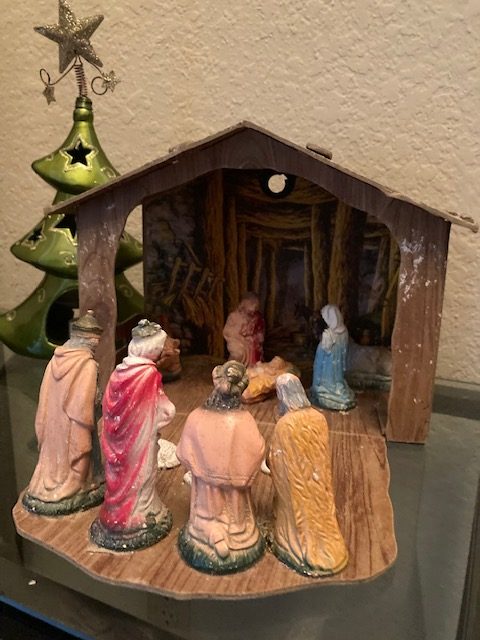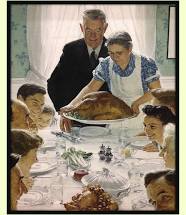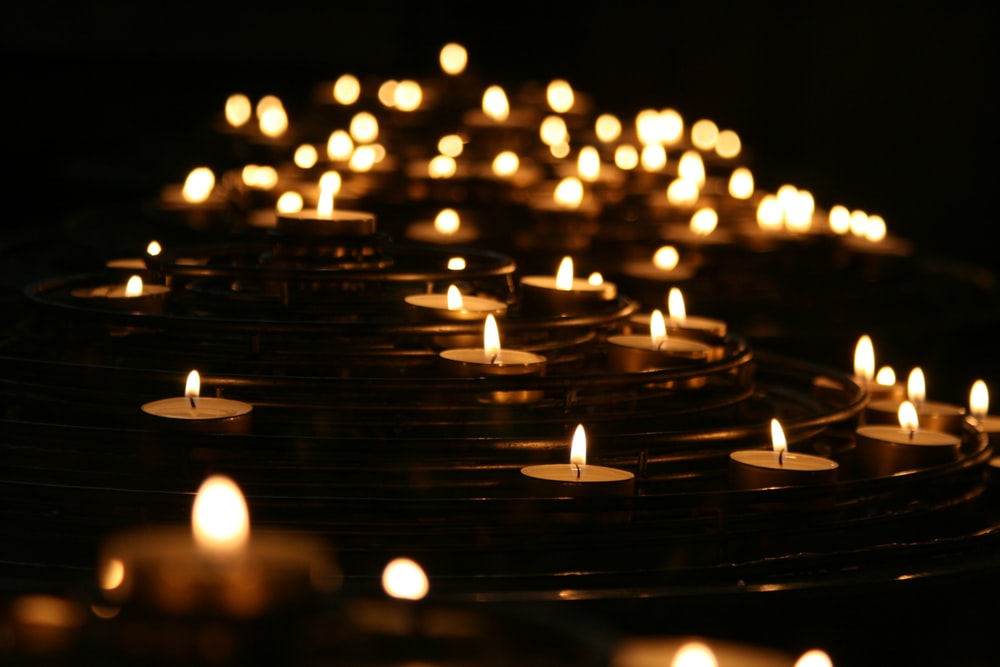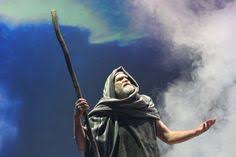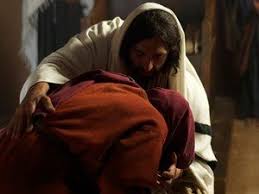Background Passages: Luke 13:10-17 and I John 1:8-9
I like to think I’m related to him. After all, we all would like to be related to someone famous.
C.S. Lewis, one of the 20th century’s most dynamic apologists of the Christian faith, is best known in the modern world as the author of The Chronicles of Narnia, a story rich in Christian symbolism. I first encountered his writings when I read The Screwtape Letters and Mere Christianity in college. The former an intriguing look at how Satan manipulates us; the latter a deep presentation of the validity of Christianity and what the life of a Christian is like.
He penned a lesser known book called Out of the Silent Planet. Similar to Narnia, it is a science fiction book written in the 1930s in which his protagonist journeys to another world. Like Narnia, he weaves Christian symbolism through the pages of Silent Planet. I admit I’ve only read snippets of this book, but within its pages Lewis uses his space traveler to explain sin to a people who never heard the concept.
After searching for a definition that would make sense to these aliens, the hero settled on the words “bent” and “bound.” Lewis defined sin as “misshapen.” “Not the way we were made to be.” “Not fit for our intended purpose.”
It is as good a definition as any. When a nail is bent, it cannot be hammered unless it is straightened. When an arrow is bent, it cannot fly straight. When we are bent, we are not shaped in the way God intended us to be. Lewis speaks of the sinner as one bound. Tied up. Unable to shake free. Trapped.
To paraphrase Romans, “For all are bent, and fall short of God’s glory.”
I’m writing today, recognizing my “bentness.” Okay, I made up that word, but you get the point. Sin makes us uncomfortable. We don’t like to think about our failings. While we know we sin, we also know that we don’t sin constantly. That we do some things right. We want to focus on that to make ourselves feel a bit better.
Here’s the truth about sin, however. When we break our arm, the rest of our body still functions as designed. We are not capable of doing everything we want to do until the arm is healed. Sin works the same way. While we can still do some good things, as long as sin is in our lives, we aren’t everything God needs us to be. We are not fit for our intended purpose.
Thank God his forgiveness is not just a heavenly thing that comes at the end of our time. Forgiveness is a daily gift for those who seek it.
Luke may not have written this story with that in mind, but it made me think again that God doesn’t wish for us to live bent and bound by sin. Look at Luke 13.
Jesus sat among the people in a local synagogue on the Sabbath, likely at the invitation of the local church officials who were somewhat excited to have this popular rabbi passing through their village. Chances are Jesus had never taught in this synagogue. He probably didn’t know too many people in the crowd. Teaching in the synagogue was simply his practice during his earthly ministry. Something he wanted to do. Something he enjoyed.
In the middle of his dialogue with the people about some passage of scripture, a woman captured Jesus’ attention, stopping him in mid-sentence. In those seconds of silence, you can hear the rustle of robes as the crowd turns to follow Jesus’ gaze.
What Jesus saw broke his heart. He swallowed a wave of overwhelming, God-inspired empathy. A lump of emotion filled his throat and the tears well up in his eyes.
“…a woman was there, crippled by a spirit for 18 years. She was bent over and could not straighten up at all.” (Luke 13:11)
When you picture this woman, you have to picture a posture more than stooped. The curvature of her spine forced her shoulders forward and downward. Bent at the waist, hobbling on unsteady legs and a knobby walking stick. Unable to lift her head above her horizon. The woman lived with a stark debilitation that left her crippled and unable to function.
As Jesus’ voice trailed off, he watched as the woman shuffled for her seat along the wall. She didn’t approach Jesus. Made no request of him. She didn’t proclaim her faith in him as a miracle worker. She just wanted to sit to take the burden off her feet and her back.
The rustle of robes returns as the crowd turns back to Jesus, as if to say, “It’s just Miriam. She’s been like that forever.” They know her. They have seen her around the village. Some of them probably even checked on her from time to time.
“Miriam,” my name for her, does today what she has probably done every Sabbath for the past 18 years. There is no indication in scripture that this was an unusual event. No indication that today the spirit moved her to get out of bed and make the difficult journey to the synagogue.
She came, as she always did, to be taught. To worship and learn. Today was no different. She probably didn’t even now there would be a guest teacher in the pulpit. This was just her place on the Sabbath. Jesus called her a “daughter of Abraham” in verse 16, possibly recognizing that this was her faithful pattern on the Sabbath, the place she needed and wanted to be on any Lord’s day.
In the midst of the ordinary, something extraordinary happened in this synagogue on this day.
Jesus swallowed the lump in his throat, choking back his emotion. He stood and called to her before she sat down, asking her to come forward. With difficulty she tilted her head to see who called out to her. As she looked sidelong at Jesus, she sidled slowly, and probably a bit suspiciously, his direction until she stood, hunched over in front of him.
Jesus dropped to a knee with his hand lightly on her shoulder, the tilt of his head matching hers until he looks her in the eyes.
His word is simple. His intent clear.
“Woman, you are set free from you infirmity. He put his hands upon her; and immediately she straightened up and praised God.”
The woman came to God’s house bent and broken, bound by her affliction. Jesus set her free. The root word in Greek for “set free” is to “loosen” or “untie.” She was no longer bent by or bound to her ailment. She had been released from almost two decades of physical torment.
Jesus set her free, released her from her bonds, not because she begged him to, but because he wanted to. He set her free because he wanted her to be free. To be what God intended her to be. It was, after all, the reason he came.
I find that an excellent illustration of our sin and God’s forgiveness. C. S. Lewis says sin misshapes us. Leaves us bent and broken. Paul talks about being bound in sin. Tied up and shackled by it. A slave to it.
I think when Jesus sees us bound in our sin, he still gets that same lump in his throat. That same overwhelming sense of empathy that he learned while hanging on a cross. It is what compelled him to die for us…an empathic love that says, “I can’t stand to see you this way.”
It is what keeps him reminding us, through his spirit, that God stands ready to forgive our sins.
God does not wait for us to come to grips with our bent and misshapen selves. Through Jesus Christ, he called us to himself, looked us in the eye, and took the full burden of our “bentness” all the way to Calvary. In doing so, he said to us, “Straighten up. You are set free.”
Once set free, we can respond as this woman did and praise God who loves us.
But, there is another character in this story. The administrator of the synagogue, the one responsible for proper protocol, objected indignantly to the healing. He quieted the crowd with a stern, “holier-than-thou” stare and a thunderous exclamation.
Rather than challenge this upstart rabbi directly, he turned his back to Jesus and admonished the astonished crowd for getting excited about a breach in protocol, putting Jesus in his place and indirectly chastising the woman whom Jesus healed.
In the arrogant tone of the righteously misguided, he said, “There are six days for work. So come and be healed on those days, not on the Sabbath.”
Protocol over people. Ritual over right.
Jesus would have none of it.
“You hypocrites! Doesn’t each of you on the Sabbath untie his ox or donkey from the stall and lead it out to give it water?” (Luke 13:15)
There’s that word again. The word Jesus used when he told the woman she had been “set free” from her disability, is the same word translated “untie” in this passage. He’s saying, “You willing set your donkey free on the Sabbath to give him a drink. Yet, you balk at setting this woman free from an 18-year trauma.”
Jesus said it better than I did. He said,
“Then should not this woman, this daughter of Abraham, whom Satan has kept bound for 18 long years, be set free (untied, released) on the Sabbath day from what bound her?” (Luke 13:16)
Here’s the kicker in this part of the story. We see clearly that the woman was set free, but what of the church official. His strict adherence to a distorted interpretation of scripture and church tradition, left him criticizing when he ought to be celebrating. His objection revealed just how bent out of shape he was. Revealed the sin in his life.
You have to wonder about the administrator. I wonder how many times this poor woman sought his prayers for healing over 18 years. I wonder if seeing her every Sabbath and now seeing her healed shamed him for his failure to invoke God’s healing.
This poor church official fell victim to a distorted spiritual view that at times inflicts all of us. C. S. Lewis said, “Those of us who do not think about our own sins make up for it by thinking incessantly about the sins of others.” It was and is a myopic view.
This church official, like me at times, got so busy “doing church” that he “did no good.” He could not recognize that his reliance on ritual blinded him to his own “bentness.” Bound to sin he didn’t know he had. Thinking that his body was functioning at 100 percent efficiency without acknowledging that his arm was broken.
When faced with our own sin, we have two choices.
We can fail to recognize that we are as bent spiritually as this woman was physically. Without recognizing our hypocrisy and seeking God’s forgiveness, we remain tied and bound to the sin.
“If we say we have no sin, we deceive ourselves, and the truth is not in us…” (I John 1:8)
Or…
We can recognize our misshapen selves. That we are living in a way that is not what God intended. A burdened, but repentant heart that stands hunched over before God seeking his forgiveness and willing to accept the grace gift of his forgiveness.
“If we confess our sins, he is faithful and just to forgive us our sins and to cleanse us from all unrighteousness.” (I John 1:9)
The attitude of the contrite gives God the chance to put his hand lightly on our shoulder and tell us to straighten up. It is a moment for praising God and celebrating our new freedom in him.
When we have been untied from the sin in our lives, Jesus gives us the opportunity to be “surprised by joy,” to use again the words of C. S. Lewis. The woman in our story praised the one who set her free.
I’m grateful for my God who is relentless in his desire to forgive.

